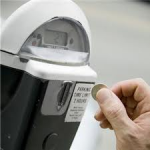By Therese Norton
 In King County, Decision 11319-A (PECB, 2013), the Commission affirmed Examiner Karyl Elinski’s decision that King County engaged in an unfair labor practice when it unilaterally changed the parking fees it charges to members of the King County Corrections Guild in its parking garage. The Commission explained that it has long recognized that changes to employee parking are a mandatory subject of bargaining because it impacts employee working conditions.
In King County, Decision 11319-A (PECB, 2013), the Commission affirmed Examiner Karyl Elinski’s decision that King County engaged in an unfair labor practice when it unilaterally changed the parking fees it charges to members of the King County Corrections Guild in its parking garage. The Commission explained that it has long recognized that changes to employee parking are a mandatory subject of bargaining because it impacts employee working conditions.
King County argued that it can change the amount it charges employees for parking because employees choose to drive to work and where to park. Furthermore, it argued, it provides other transportation options to employees, like a transit pass. The County also argued that it made the decision to increase parking rates simply to bring the amount it charges for parking in line with the “market rate.” The Commission rejected all of these arguments, stating that they do not negate the employer’s “affirmative duty to give notice and provide an opportunity to bargain before it changes mandatory subjects of bargaining, including parking.”
In this case, King County also raised a “waiver” argument. The County argued that the Guild had waived its right to bargain increased parking rates because it had not done so in the past. The Commission also rejected this argument stating:
While the union clearly waived its right to bargain the 2006 increase in parking rates, the failure to request bargaining in 2006 does not preclude the union from requesting to bargain increases in the parking rate at future times. Each time the employer makes a change to a mandatory subject of bargaining without providing notice and, upon request, bargaining, the employer triggers the statute of limitations for a unilateral change.
As a result of this decision, King County must bargain with the King County Corrections Guild about any changes to the parking rates it charges employees in its parking facility.


